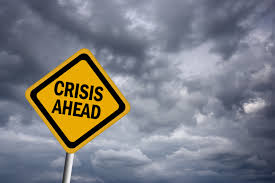记忆方法
1. "turning point in a disease" 病情的转折点。
2. 能够看清楚、能够判断、能够下决定、能够辨别、区分病情情况的病情转折点。当病情发展到这个转折点时才能够判断病情是会好转还是恶化等。
2. 能够看清楚、能够判断、能够下决定、能够辨别、区分病情情况的病情转折点。当病情发展到这个转折点时才能够判断病情是会好转还是恶化等。
中文词源
crisis 危机
PIE*krei, 区分,筛选,词源同crime, critic. 进一步来自PIE*sker, 砍,劈,词源同shear,carnal. 引申义区分,选择,危机。
英语词源
- crisis (n.)
- early 15c., from Latinized form of Greek krisis "turning point in a disease" (used as such by Hippocrates and Galen), literally "judgment, result of a trial, selection," from krinein "to separate, decide, judge," from PIE root *krei- "to sieve, discriminate, distinguish" (cognates: Greek krinesthai "to explain;" Old English hriddel "sieve;" Latin cribrum "sieve," crimen "judgment, crime," cernere (past participle cretus) "to sift, separate;" Old Irish criathar, Old Welsh cruitr "sieve;" Middle Irish crich "border, boundary"). Transferred non-medical sense is 1620s in English. A German term for "mid-life crisis" is Torschlusspanik, literally "shut-door-panic," fear of being on the wrong side of a closing gate.
权威例句
- 1. The Kremlin is still insisting on a diplomatic solution to the crisis.
- 俄罗斯中央政府依然坚持通过外交方式解决危机。
- 2. An end to the crisis seems a long way off.
- 这场危机看来远未结束。
- 3. The government is taking emergency action to deal with a housing crisis.
- 政府正采取紧急措施解决住房危机。
- 4. The Government is doing nothing to intervene in the crisis.
- 政府没有采取任何行动对这次危机进行干预。
- 5. The state government has lurched from one budget crisis to another.
- 州政府陷入一个又一个的预算危机。
